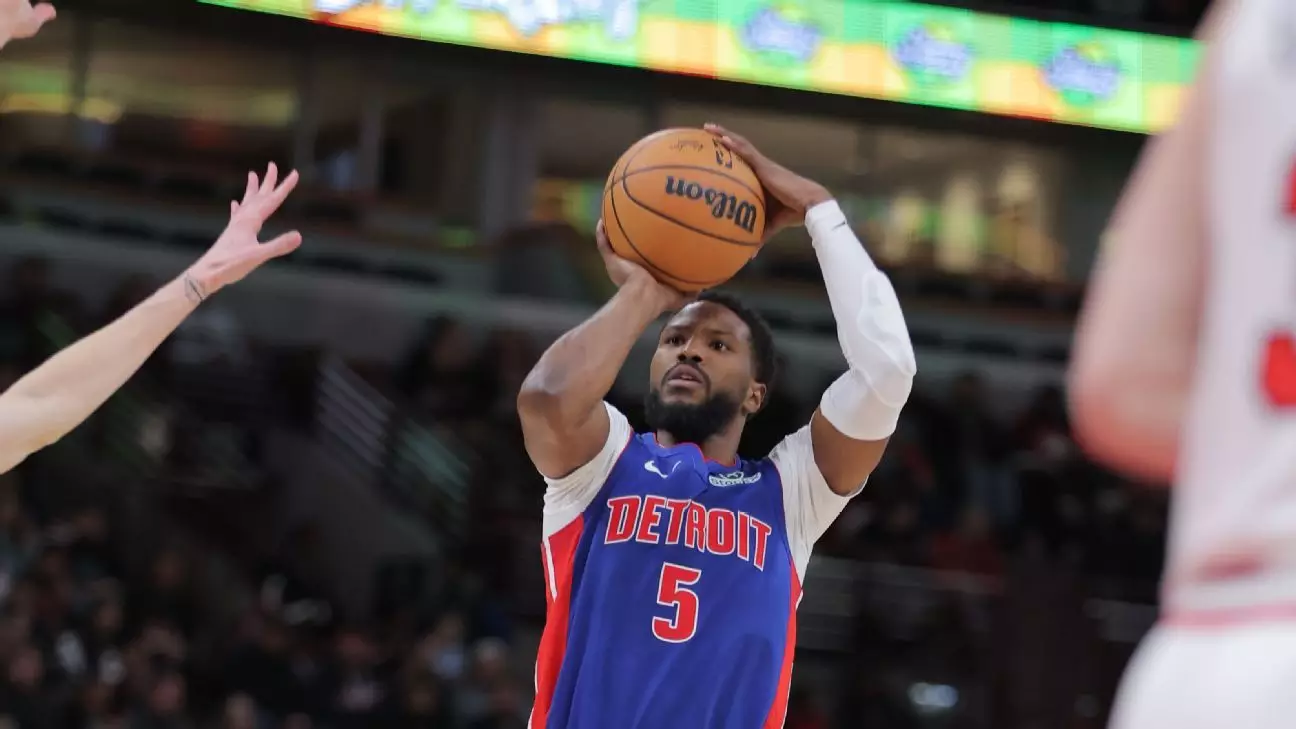Federal scrutiny into Malik Beasley’s alleged involvement in gambling seems less an isolated scandal and more a symptom of a broader vulnerability in professional sports. The Detroit Pistons guard—formerly with the Milwaukee Bucks—finds himself under investigation for suspicious betting activity linked to his performances this season. While Beasley has not been charged, the mere presence of a federal probe raises urgent questions about the susceptibility of NBA players to gambling pressures and the league’s capacity to safeguard its integrity.
This investigation stands out not just because of Beasley’s personal trajectory but because it echoes a series of incidents reflecting systemic weaknesses. From Jontay Porter’s and Terry Rozier’s cases to Beasley’s own legal history, the NBA’s current gambling conundrum signals that existing safeguards are either ineffective or inconsistently applied. The ripple effects extend beyond just one player, shaking public trust and casting doubt on the authenticity of the game itself.
The Complex Intersection of Player Vulnerability and Sports Betting Boom
The rapid growth of sports betting, legalized in many states over the past decade, creates a nuanced challenge. On the one hand, sports betting has opened new revenue streams and fan engagement opportunities. On the other, it inevitably creates a tempting and dangerous environment for athletes who may lack adequate education or support to navigate these risks.
In Beasley’s case, an unusual surge in betting patterns focused on his rebounds was flagged by sportsbooks—bets that ended up losing when Beasley outperformed the expectations. This oddity highlights the intricate ways prop bets can manipulate perceptions and potentially exploit insiders. It also raises questions about the education NBA players receive regarding gambling and whether the league’s current protocols truly address the threat.
Given Beasley’s recent history—his prior felony conviction and suspension—there is an added layer of context. The NBA is dealing not only with gambling’s influence but with athletes who have complex personal histories. The convergence of these factors demands a more proactive stance from the league, one that balances player rehabilitation with firm ethical standards.
NBA’s Response and the Need for Stronger Accountability
The Pistons’ decision to pause contract talks amid the investigation reflects a prudent, if cautious, approach, but it also reveals the chilling effect such a probe can have on a player’s career. From a center-wing liberal perspective, we must recognize the importance of due process and resist rushing to judgment. Yet, this is not a call to absolve but to demand rigor, transparency, and consistency in enforcing rules.
The NBA’s cooperation with federal authorities suggests an understanding of the gravity of these allegations. However, the league’s historical responses to similar issues have often appeared reactive rather than preventative. A revamped, comprehensive framework is overdue—one where gambling education is mandatory, monitoring is enhanced with technology, and penalties for violations are clear and equitable.
Moreover, the league must extend its responsibility beyond the playing floor—addressing the underlying mental health and financial stresses players face. This holistic approach is essential for creating an environment where temptations tied to gambling can be actively resisted, rather than silently proliferated.
The Larger Cultural Dimensions and Challenges Ahead
Malik Beasley’s predicament exemplifies a more profound cultural dilemma in professional sports—how do leagues protect their human assets in a hyper-commercialized, betting-saturated era? The NBA sits at a crossroads, where its promise as an equitable, thrilling sport conflicts with the realities of money-driven incentives and vulnerabilities.
While individual accountability remains essential, the systemic factors fueling these incidents demand equal scrutiny. With gambling becoming ever more normalized and ubiquitous, the league must also confront implicit messages around risk-taking and behavior among young players. Without a thorough cultural recalibration, the NBA risks repeating scandals that erode fan confidence and compromise the spirit of competition.
Ultimately, Malik Beasley’s gambling investigation is a clarion call—pointing not simply to one athlete’s actions but to a league and a society grappling with balancing professional sports and gambling’s expanding reach. How the NBA responds could redefine its integrity for years to come.

Leave a Reply